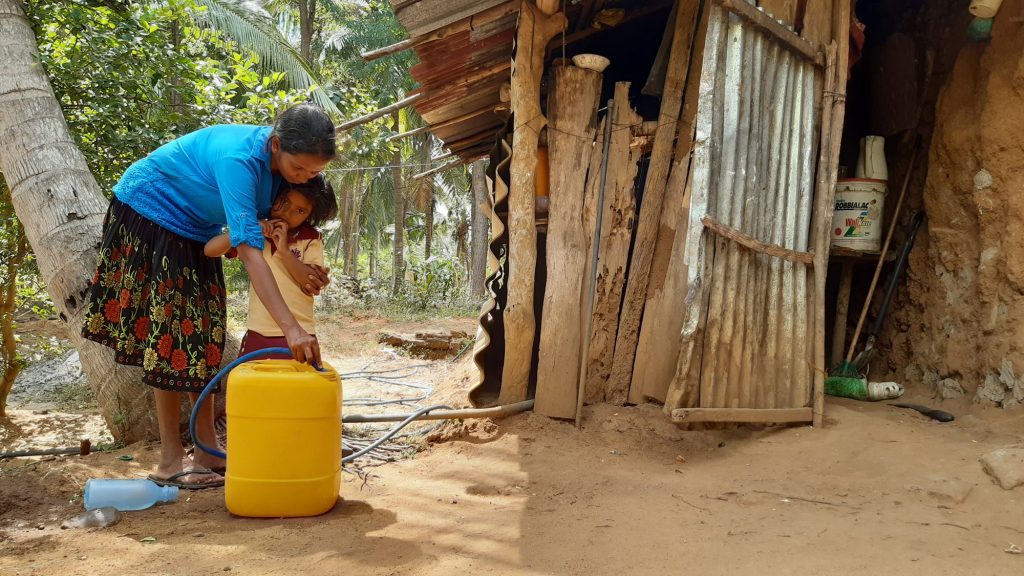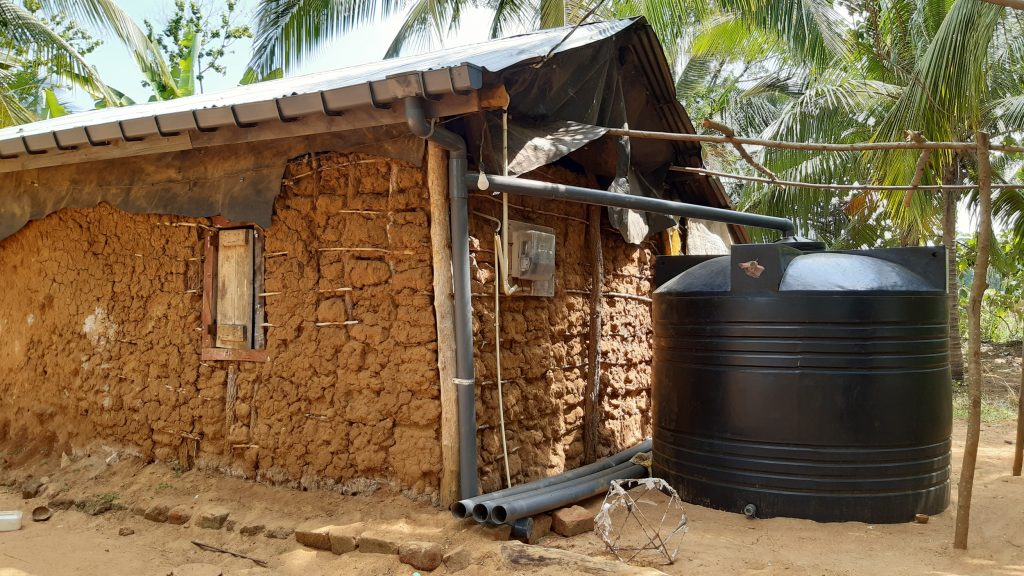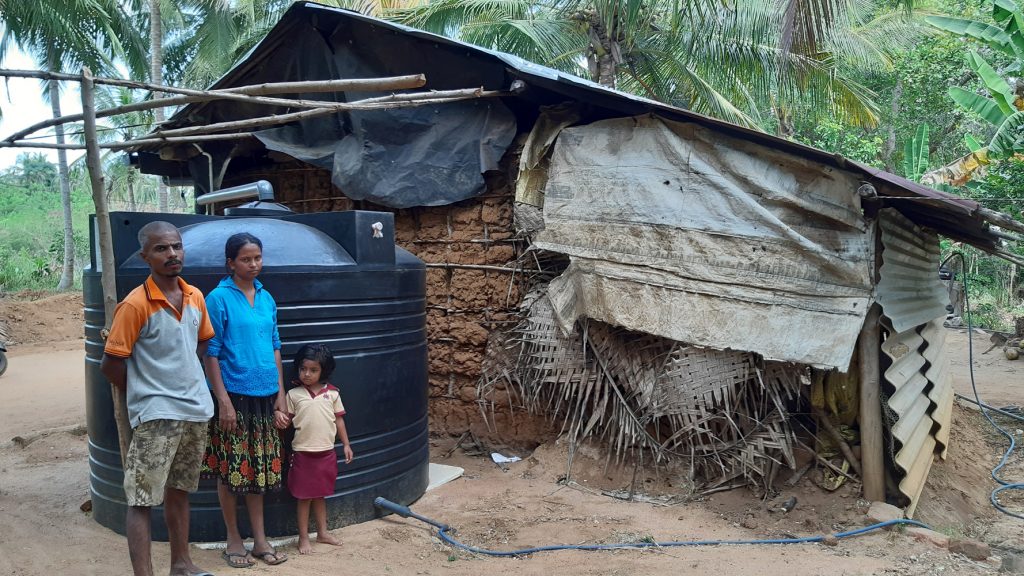Rain water harvesting brings relief to families living in dry zones
By Ganga Kariyawasam
Life has changed for Shanika and her family thanks to the rainwater harvesting system. Shanika and her family live in Rekeula Village, Polpithigama which is yet another dry zone area of the Kurunegala District. This village receives rain merely a couple of months during the entire year. Also, the Rekeulla village has a very deep groundwater table, therefore the villagers face severe difficulties in finding safe drinking water.
Shanika who lives with her husband and two daughters too had to face the challenge of finding safe drinking water. Fortunately, the family received a rainwater harvesting tank just before the monsoon rains in October last year. Since then they have managed to use the rainwater for drinking and cooking purposes up until now.
“Those days we had to walk far away to find drinking water. Now we have that facility in our compound. A water can of 20 liters is sufficient for 1 – 11/2 days for all four of us. I think we can manage this water up until the next monsoon rain which falls in next October”, Shanika said with a satisfied tone.
Her calculation is correct. Since they got a 5000-liter tank, water is sufficient for 8 – 9 months, which can be managed until the next rainy season.
The Climate Resilience Integrated Water Management Project or “Wew Gam Pubuduwa”, Sri Lanka Red Cross Society mobilizes the dry zone communities towards year-round access to a reliable and safe water supply. With this initiation of rainwater harvesting, not only this family but also 53 families in the village and 542 families in the Kurunegala district guaranteed safe and adequate drinking water during the year by now.
About the Climate Resilient Integrated Water Management Project (CRIWMP)
The Sri Lanka Red Cross Society mobilizes farmer communities in the dry zone to adopt climate-resilient agricultural activities. The Climate Resilient Integrated Water Management Project is a 7-year project aimed at strengthening the resilience of Smallholder Farmers in Sri Lanka’s Dry Zone to climate variability and extreme events.
The Project is financed through a grant received from Green Climate Fund (GCF) while the Government of Sri Lanka has committed to co-finance the activities identified under the Project as well. Ministry of Mahaweli Development and Environment, is an implementing partner for this project, with the technical assistance of the United Nations Development Program (UNDP) and work with a number of government institutions to deliver the project activities and outputs while measuring its’ impact.


